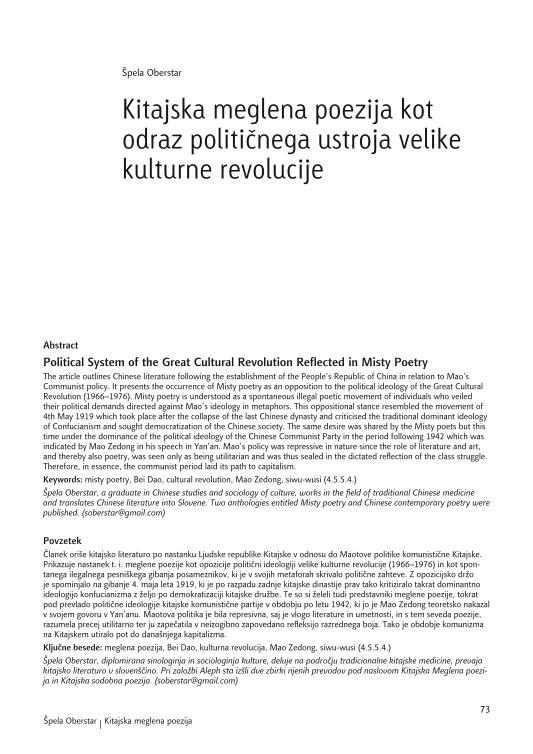The article outlines Chinese literature following the establishment of the People’s Republic of China in relation to Mao’s Communist policy. It presents the occurrence of Misty poetry as an opposition to the political ideology of the Great Cultural Revolution (1966–1976). Misty poetry is understood as a spontaneous illegal poetic movement of individuals who veiled their political demands directed against Mao’s ideology in metaphors. This oppositional stance resembled the movement of 4th May 1919 which took place after the collapse of the last Chinese dynasty and criticised the traditional dominant ideology of Confucianism and sought democratization of the Chinese society. The same desire was shared by the Misty poets but this time under the dominance of the political ideology of the Chinese Communist Party in the period following 1942 which was indicated by Mao Zedong in his speech in Yan’an. Mao’s policy was repressive in nature since the role of literature and art, and thereby also poetry, was seen only as being utilitarian and was thus sealed in the dictated reflection of the class struggle. Therefore, in essence, the communist period laid its path to capitalism.




